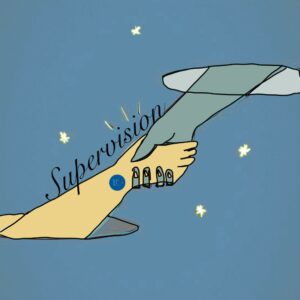Supervision Services for MHPs
- Home
- /
- For Professionals
- /
- Supervision Services for MHPs

Supervision at Pause for Perspective
Reflection leads to different forms of learning, all of which are the appropriate domain of supervision. The deepest form of learning used in supervision is transformational learning, which combines both personal and professional learning. In transformational learning, supervisees critically reflect not just on their experience but the way they construct their experience. In doing so, they open themselves up to new transformational learning, which creates new mental maps or meaning-making frameworks that help interpret their experience, learn from it and go back to their work with new insights and new behaviors. This is supervision at its creative best and most courageous.
Charles Péguy, a French writer, told the story of a man who died and appeared before the Recording Angel to give an account of his life. The Angel asked, “Show me your wounds.” “Wounds” the man replied. “I don’t have any wounds.” And the Recording Angel said, “Didn’t you find anything on earth worth fighting for?”
Supervisors and supervisees have many wounds as they fight together and separately for transformational learning.(From Supervision: Critical Reflection for Transformational Learning. Michael Carroll.)
At Pause for Perspective we offer supervision for Transformational Learning of the professional. The basis of supervision for MHPs (Mental Health Practitioners) is consultant/non-managerial. It aims to be reflective and growth-promoting rather than administrative and evaluative.
Supervision: What is it for?
- to provide regular opportunities to reflect on your work.
- to develop skills and strategies that allow you to be more effective in your role.
- to gain insight and understanding about why things turned out the way they did.
- to receive feedback on your actions/approach/behaviours.
- to be validated and supported as a person and as a practitioner.
- to ensure that you are not left to carry, alone difficulties, problems etc. as a result of the work that you do.
- to offload and express personal responses/feelings that arise as a result of your work.
- to be proactive rather than reactive.
- to manage yourself in your role.
- to check decisions and choices you have made in the course of your work.
- to ensure quality of care for clients.
(Adapted from Shohet & Hawkins, Supervision in the Helping Professions).
What to bring to Supervision?
- Situations which you feel you could have managed more effectively.
- Something that went unusually well or had a successful outcome.
- An incident or issue that you keep thinking about or has caused you to feel upset.
- Something that is in process and could go one way or the other.
- A situation which is coming up and may be challenging.
- Planning and development issues or tasks.
- Decisions, ethical dilemmas or career choices.
- A theme or issue that is apparent in your work.
Your Supervisor will:
- Provide supervision for the person (the supervisee) and not the case
- ensure safe space for the supervisee to lay out their practice issues in their own way.
- Give clear feedback.
- Share information, experience, and skill appropriately.
- Challenge practice we judge as unethical, unwise, and/or incompetent.
- Challenge personal and professional blind spots we perceive in the supervisee.
Our Supervisors
All the supervisors at Pause for Perspective are trained in providing supervision, through the Supervision Skills for Health & Social Service Professionals Programme from the New Zealand Coaching and Mentoring Centre. Our stance at Pause for Perspective is Social Justice based, ie., we are aware that mental health is impacted by intersectional identities. We are queer affirmative, trauma sensitive, disability aware, anticaste and feminist. Our supervisors are trained in Mindfulness Based Interventions, Narrative Practices, Solution Focussed Brief Therapies, Cognitive Behavior Therapy, Attachment theory and more.
How to Apply for Supervision
- Reach out to aarathi.selvan@gmail.com with the following information:
- Your CV statement of intent along with hopes for the work in supervision
- The selection of supervisees will be based on the needs of the supervisees and fit.
Logistics
- Supervision will typically be scheduled for once in two weeks with your supervisor.
- Supervision Duration: Each session will be one and a half hours long
- Supervision Fee: Rs 2500/- (Negotiable)
- Note: : Pause for Perspective does not take any responsibility for the work of the supervisee at the supervisees’ place of practice. The purview of supervision is limited to the supervisory contract.

